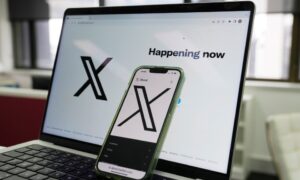China’s Huawei, redlisted by the U.S., said on Saturday it is targeting 100,000 applications for its Harmony operating system in the coming months as it seeks widespread help to achieve self-reliance.
TakeAway Points:
- The U.S.-banned Chinese company Huawei announced on Saturday that it hopes to reach self-reliance by obtaining 100,000 applications for its Harmony operating system in the upcoming months.
- U.S. billionaire Elon Musk, owner of social media platform X, has criticised Australia’s proposed law to ban social media for children under 16 and fine social media platforms of up to A$49.5 million ($32 million) for companies for systemic breaches.
- A number of nations have already committed to enacting laws to limit children’s access to social media, but Australia’s approach may end up being among the strictest in the world, with no exceptions for parental agreements or accounts that already exist.
100,000 apps on Harmony OS
The tech giant has more than 15,000 applications based on Harmony that can meet consumers’ basic needs, but the ecosystem requires more personalised and boutique apps, Huawei Chairman Xu Zhijun told a conference on Saturday.
“Based on our analysis, for the Harmony ecosystem to be mature in meeting consumer needs, 100,000 apps is the milestone, and that is the key objective over the next six to 12 months,” Xu said in a speech posted on the WeChat messaging app.
The ambitious app target highlights the urgency in developing home-grown technologies as China faces elevated tensions with the U.S. in areas ranging from trade to technology as President-elect Donald Trump threatens to be tougher on China.
Huawei launched its operating system five years ago after U.S. sanctions cut off support for Google’s Android. The Shenzhen-based company, which sells products ranging from smartphones to laptops, later developed an open-source version of the Harmony system.
Strict regulations for Huawei
Due to the U.S. sanctions, “Huawei has been forced to accelerate developing its own operating system,” Xu said. Although much progress has been made, “for any operation system, no matter how advanced it is, it would be of no value if no one uses it.”
Xu expressed hope that developers could work hard to enrich app offerings and called on government agencies, state companies and social organisations to use Harmony as their operating system at work.
He asked consumers to be tolerant of the system’s immaturity, saying, “The more people use it, the more quickly it will become mature.”
Huawei unveiled Harmony in August 2019, three months after Washington placed it under trade restrictions over alleged security concerns. Huawei denies its equipment poses a risk.
“No way back leads to victory,” Xu said. “Huawei will unwaveringly invest in developing the Harmony ecosystem, and strive to make the impossible possible.”
Elon Musk Criticises Australia’s Proposed Child Social Media Ban
The owner of the social networking platform X, U.S. billionaire Elon Musk, has slammed Australia’s planned rule that would prohibit children under 16 from using social media and fine social media corporations up to A$49.5 million ($32 million) for systemic violations.
Australia’s centre-left government on Thursday introduced the bill in parliament. It plans to try an age-verification system to enforce a social media age cut-off, some of the toughest controls imposed by any country to date.
“Seems like a backdoor way to control access to the Internet by all Australians,” Musk, who views himself as a champion of free speech, said in a reply late on Thursday to Prime Minister Anthony Albanese’s post on X about the bill.
Social media ban in other countries
Several countries have already vowed to curb social media use by children through legislation, but Australia’s policy could become one of the most stringent with no exemption for parental consent and pre-existing accounts.
France last year proposed a ban on social media for those under 15 but allowed parental consent, while the U.S. has for decades required technology companies to seek parental consent to access the data of children under 13.
Musk has previously clashed with Australia’s centre-left Labor government over its social media policies and had called it “fascists” over its misinformation law.
In April, X went to an Australian court to challenge a cyber regulator’s order for the removal of some posts about the stabbing of a bishop in Sydney, prompting Albanese to call Musk an “arrogant billionaire”.



































